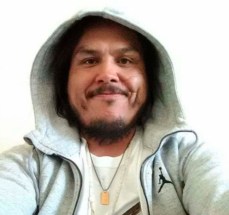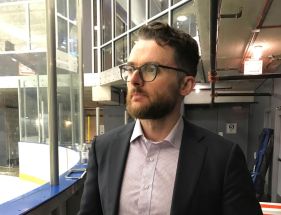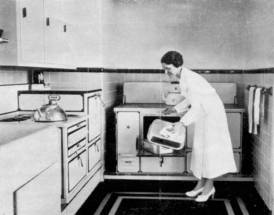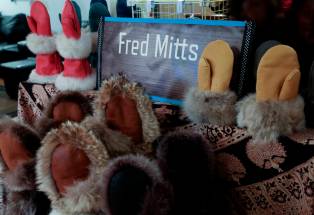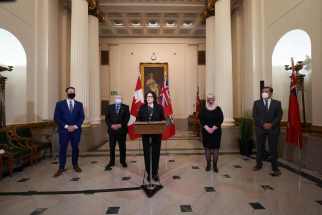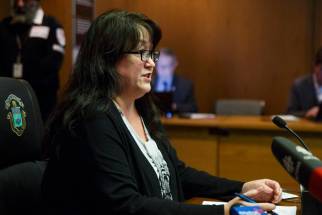Road warrior, road worrier Chris Kreviazuk ensures the Winnipeg Jets are rested, fed and get where they need to be
Read this article for free:
or
Already have an account? Log in here »
To continue reading, please subscribe:
Monthly Digital Subscription
$0 for the first 4 weeks*
- Enjoy unlimited reading on winnipegfreepress.com
- Read the E-Edition, our digital replica newspaper
- Access News Break, our award-winning app
- Play interactive puzzles
*No charge for 4 weeks then price increases to the regular rate of $19.00 plus GST every four weeks. Offer available to new and qualified returning subscribers only. Cancel any time.
Monthly Digital Subscription
$4.75/week*
- Enjoy unlimited reading on winnipegfreepress.com
- Read the E-Edition, our digital replica newspaper
- Access News Break, our award-winning app
- Play interactive puzzles
*Billed as $19 plus GST every four weeks. Cancel any time.
To continue reading, please subscribe:
Add Free Press access to your Brandon Sun subscription for only an additional
$1 for the first 4 weeks*
*Your next subscription payment will increase by $1.00 and you will be charged $16.99 plus GST for four weeks. After four weeks, your payment will increase to $23.99 plus GST every four weeks.
Read unlimited articles for free today:
or
Already have an account? Log in here »
Hey there, time traveller!
This article was published 21/01/2022 (1416 days ago), so information in it may no longer be current.
ON THE ROAD WITH THE WINNIPEG JETS — Twenty-three days. Eight cities. More than 18,000 kilometres.
When the Jets touch down at James Armstrong Richardson International Airport early Sunday evening, they’ll have finally completed a surreal stretch that can only be described as making the best of a bad situation.
A trip like no other in their history; actually three separate journeys broken up by periodic rest stops back home to practise, practise and practise some more.
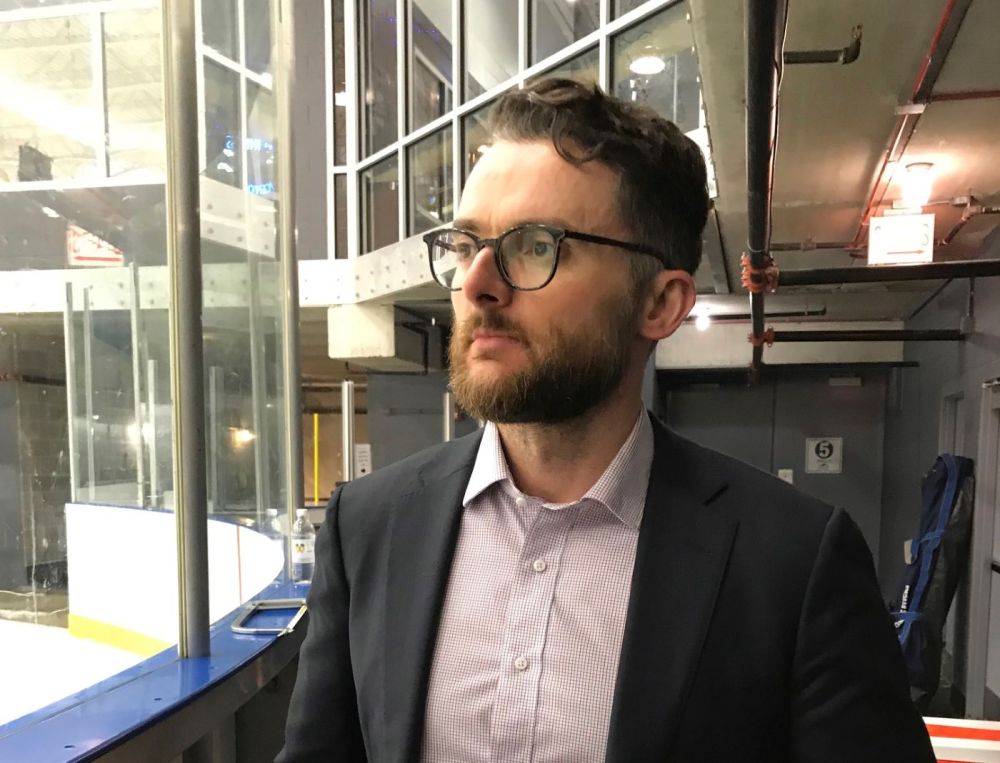
First up was a flight to Las Vegas on New Year’s Day with games to follow in Sin City, Phoenix and Denver. Then it was a one-and-done a week later in Detroit. And now this final leg, which began Monday with a trek to Washington, D.C., continued on to Nashville and wraps with back-to-back weekend matinees in Boston and Pittsburgh.
It was not supposed to be this way. But COVID-19 and its fast-spreading Omicron variant had other plans. Six home games that would have broken up this ridiculous run of road hockey were postponed after the provincial government capped capacity at Canada Life Centre at just 250 fans due to surging case numbers. The hope is by pushing them to later in the year, public-health orders might be loosened and True North can mitigate some of its financial losses. Time will tell if that strategy works, or if Plan B, essentially, backfired.
You know plenty about the on-ice product. Winnipeg has gone 3-2-1 in the six games in enemy territory so far this month, including a 4-3 overtime loss in Washington and a 5-2 setback in Nashville. They’ll try to end things on a high note against a pair of tough opponents in the Bruins and Penguins.
But you don’t see the behind-the-scenes efforts to keep a professional sports team sailing as smoothly as possible in the middle of a global pandemic, one that’s had its carefully planned schedule thrown completely out of sync.
Save for the pit stop in the Motor City that was skipped, the Free Press has been on hand for all the January action — on and off the ice.
More than a dozen players and coaches tested positive, some before the team travelled, keeping them at home; an unprecedented flurry of roster moves as players bounce around among the Jets, the AHL’s Manitoba Moose and the emergency taxi squad; and even on-the-fly protocol changes that have altered the day-to-day operations of the club.
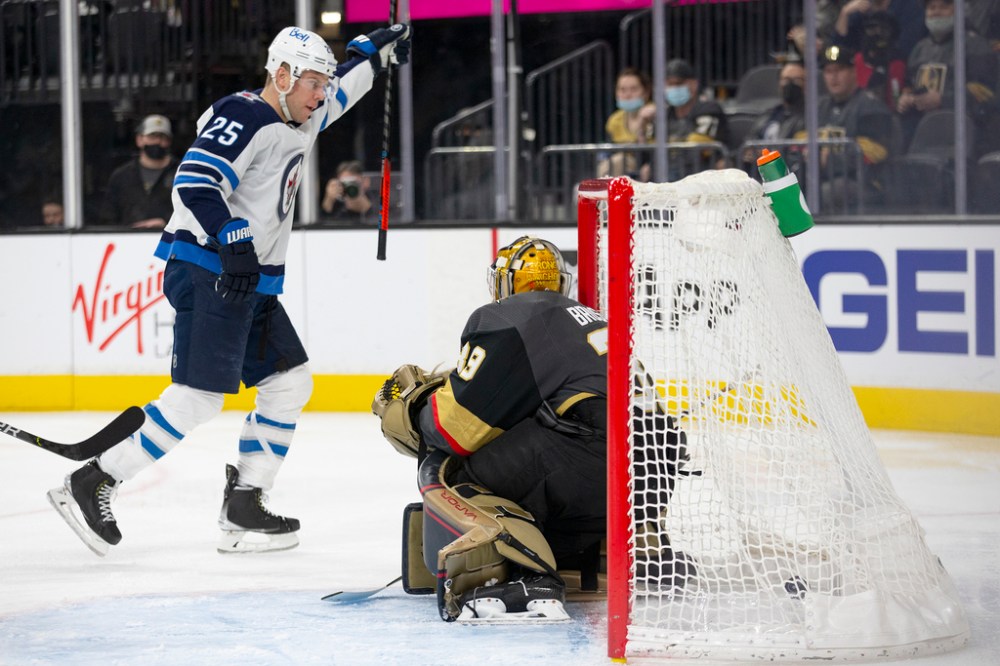
No surprise, then, that manager of team services Chris Kreviazuk, the man tasked with trying to keep the Good Ship Winnipeg from running into an iceberg, isn’t sleeping very well or, much at all, for that matter. And to make things just a tad more challenging, wait for it… he was stricken by the virus at the beginning of the month.
“I was doing all the work from my couch,” Kreviazuk said during a lengthy interview earlier this week in Nashville, where he was thankful to be back running the gong show in person. “It is what it is. We’re all trying to kind of pull it together right now.”
About the only off-ice thing Kreviazuk doesn’t have a direct hand in these days is the pre-game soccer warmup, which was going on just off to the side as he spoke with the Free Press in the bowels of Bridgestone Arena, where more than a dozen Jets players were participating, with bragging rights and perhaps a bit of cash on the line. The final three in the elimination game — you’ve got to keep the ball in the air with any part of your body — were Pierre-Luc Dubois, Nate Schmidt and Dominic Toninato. Dubois was the eventual champion this time.
“I kind of embrace these challenges,” Kreviazuk said. “Would I want to do three or four more seasons of this? No, but for the time being, we’re all struggling and I almost think it’s just us banding together. I think you see that in the locker room. It’s brought a sense of unity.”
Typically, Kreviazuk maps out every detail of the season to come by the time training camp rolls around. You name it, he’s on it: hotel bookings, flight plans, buses to get as many as 50 players, coaches, trainers and other staff between airports and rinks, food service. And, of course the “new normal” of daily private COVID-19 testing for players, which he does in conjunction with head athletic therapist Rob Milette — the “Grim Reaper” who typically calls players with the negative news about the positive results. Kreviazuk also has regular conversations with Jets general manager Kevin Cheveldayoff to keep him in the loop.
The Oakbank native, who graduated with BA in kinesiology from the University of Winnipeg in 2009, had all his ducks in a row for the 2021-22 season by the end of last summer. Until, of course, those ducks were blown right out of the water.
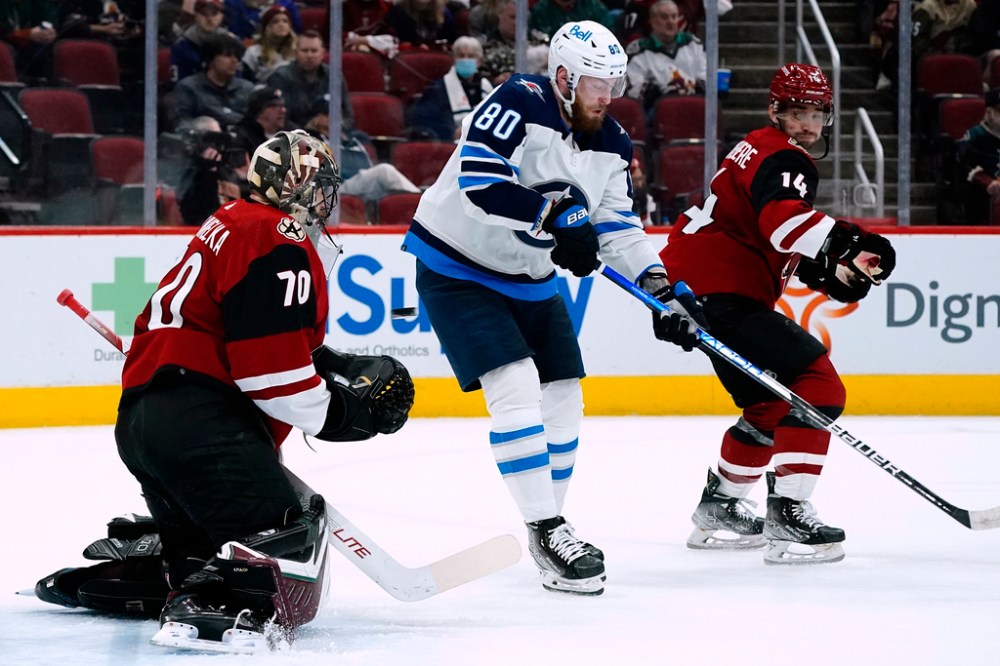
Kreviazuk is now scrambling to get plans in place for a suddenly busy month of February during which the Jets will play eight of their nine postponed games during the 14-day window originally left open by the NHL to allow players to compete in the Beijing Winter Olympics (three road dates in late December were also scrubbed due to COVID-related issues).
“Now I’m kind of back to the drawing board doing things I would have done last July in a normal year. Itineraries for every road trip, exact meal times, booking testing times, bus times, flight times, all that kind of stuff. But it’s only a month’s worth, and a lot of that month is going to be spent at home, so that makes it a bit easier,” he said.
“Hotels (they’ve had to cancel) have been pretty good to us. We tell them as long as they have the availability we’ll come back to them at a different time, and so far it seems like they’ve all been able to accommodate…. It’s kind of hilarious. You kind of have to embrace it. If not, you’re going to get pissed off and lose your mind.”
•••
Out of sight, out of mind?
With no home games since way back on Dec. 19, and COVID-19 running wild through the roster, there’s been the additional challenge of trying to keep the community connected to the club. And when it comes to media access, there’s been some changes. Not to mention challenges.
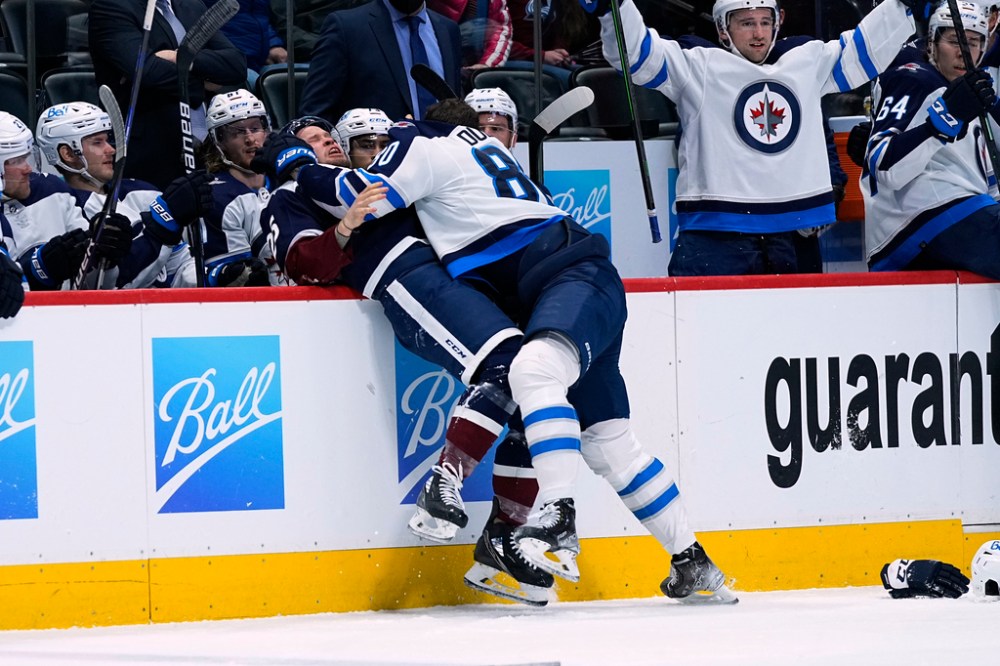
Face-to-face interviews were replaced by Zoom availabilities at the start of the month out of an abundance of caution, but the Jets are now slowly starting to go back to the old way of doing things as this latest mini-crisis appears to have subsided. So far this week, there have been a mix of in-person and on-camera questions. The Free Press and team radio partner CJOB are the only media outlets that have covered the team on the road since December, so there has been plenty of up-close and personal time with the players and interim head coach Dave Lowry.
That hadn’t been the case over the previous few weeks.
“I don’t like Zoom. I think Zoom is something that is not productive for either side,” said Scott Brown, the senior director of hockey communications for the organization.
“I think the players have grown to dislike it. Just because there is a dynamic with you in the same room together, a back-and-forth that doesn’t happen through a very structured situation like Zoom.”
Indeed, from a journalistic perspective, in-person contact is important in building relationships and facilitating story ideas. It’s nearly impossible to do that from behind a computer screen thousands of kilometres away.
You also pick up little things from just being present, and they eventually add up.
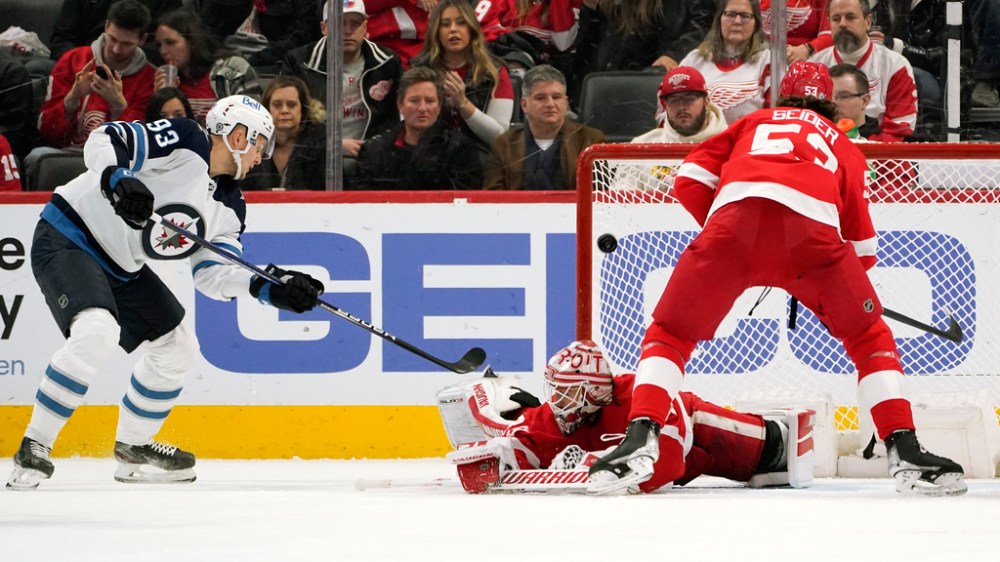
During the Jets’ morning skate Tuesday at Capital One Arena in Washington, Andrew Copp and Cole Perfetti were the first two on the ice, and Copp could be heard complaining to the rookie about the poor quality of the ice.
“It’s really sticky. It sucks,” he said.
A few hours later, there was Copp on a first-period breakaway, his team already up 2-0. Wouldn’t you know it? The puck suddenly jumped off his stick at the last second, as if the ice had heard his unkind words and decided to make him pay.
Nikolaj Ehlers walked out of Bridgestone Arena in Nashville Thursday morning with a slight limp, but no crutches or leg brace after taking a brutal knee-on-knee hit 48 hours earlier from Capitals defenceman Dmitry Orlov, who was suspended for two games. Word around the team is the Danish winger suffered an MCL sprain and is out week-to-week.
With Zoom, we’ve seen plenty of recent examples of the potential disconnect that can happen between players and media, whether it’s Leon Draisaitl snapping at an Edmonton reporter’s question this week or Jets goalie Connor Hellebuyck refusing to answer a Winnipeg Sun scribe’s query earlier in the month because he felt he’d been slighted in a previous column. Those are the kinds of issues that typically get worked out privately in person, not in a public forum.
“It’s just a really different product that’s happening, I think, for the Winnipeg fan-base,” said Brown. “This whole stint, not playing any home games, you are out of your comfort level. That’s probably the biggest difference.”
Once Zoom is fired into orbit for good, you also won’t have to worry about the technical snafus that inevitably occur and have reared their ugly heads again this week — including shoddy Wi-Fi connections, malfunctioning microphones and audio levels dropping out.
“When our numbers were really rising, we just made the decision given the public trends, the smartest thing to do for the community was to kind of go back to the way that it was (last season), somewhat reluctantly,” said Brown.
“But now that I think about 50 per cent of our travelling party has been affected by it (COVID), the concerns with it are kind of gone. So you make the move to go back to being a little more personable.”
Amen to that.
•••
Winnipeg is carrying a bloated roster right now, including 22 rostered players, two injured players (Ehlers and Blake Wheeler), two non-roster players coming out of COVID-19 protocol (Brenden Dillon and Eric Comrie) and three members of the taxi squad. Having so many bodies around is an additional challenge, although it’s been a bit smoother than last year’s 56-game truncated schedule in which the NHL’s pandemic protocols were stricter than they currently are.
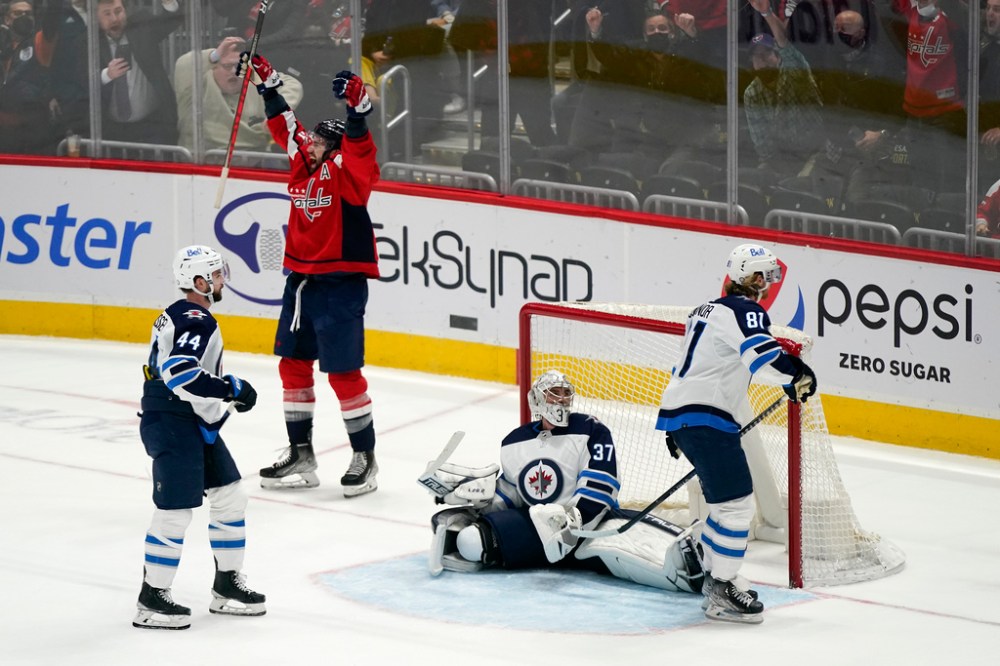
“We had to split up the players to create the extra space. You’d have the taxi squad skate after the main group to keep them apart. I’d have four or five bus runs going back and forth,” Kreviazuk said of shuffling players from Point A to Point B.
Now, they’re free to mix and match, and Lowry has been putting them all on the ice together, suggesting he’s trying to send a clear message to all players they shouldn’t get too comfortable because there are others waiting in the wings.
The result has been morning skates and practices this week that look like something right out of training camp with the volume of hockey humanity on display. Kreviazuk said it can all get a bit dizzying.
“Extra bodies to take care (of), keeping track of where everybody’s at. Who’s on what roster and who’s in what city right now,” he said, noting that not everyone has had the luxury of those brief returns to Winnipeg to break up a very long month.
Take the past week, for example. Paul Stastny tested positive just as the Jets were set to board the charter for Detroit, so he stayed behind with his family (who also got COVID-19). But Dillon, Comrie and assistant coach Wade Flaherty all tested positive the next day in Motown, meaning they couldn’t accompany the team on the flight back home following a 3-0 victory over the Red Wings. Under federal guidelines in both Canada and the U.S., they had to remain isolated for at least five days, but could emerge, provided they had no symptoms.
Dillon ultimately drove to Washington — he still has a home in the city where he played the previous two seasons — but he still wasn’t cleared to play in time because a lab-based PCR test was under the NHL standard for re-joining the team. Knowing he wasn’t going to be able to play in Nashville either, he flew commercially from Washington to Boston on Friday morning after finally getting the green light with his latest test Thursday afternoon.
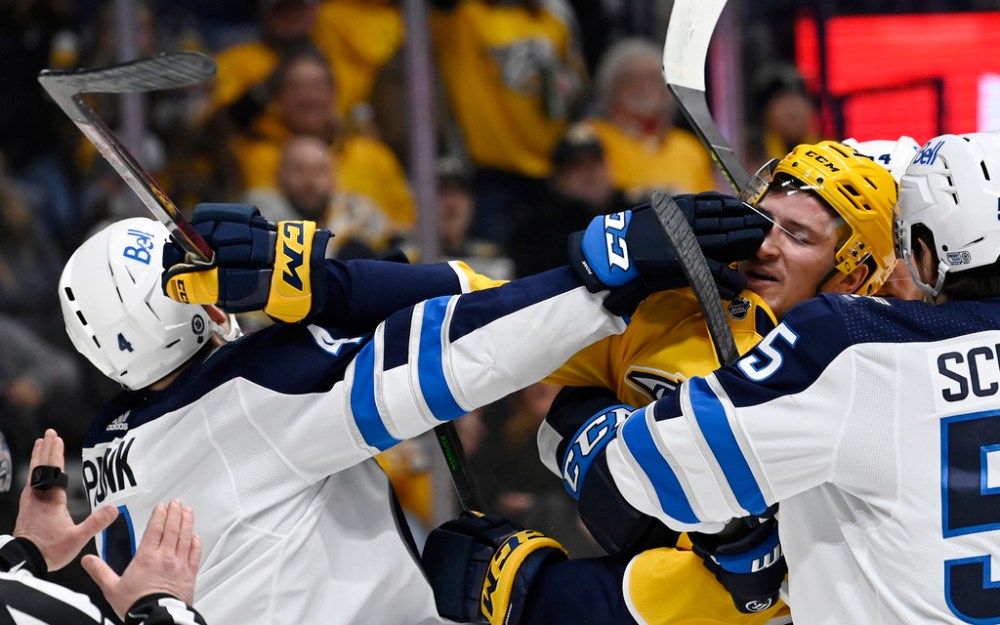
Comrie and Flaherty rented a car and drove to Nashville earlier this week, but they had to be kept away as well for the same reason. I ran into the pair as I strolled to the rink Wednesday afternoon for Jets practice. They were out for a walk, and we stopped and chatted for a few minutes about their adventures. Flaherty even took a playful jab at Comrie for his driving skills for the eight-hour trek from Detroit.
Flaherty finally got the all-clear on Thursday morning and was on the ice for the pre-game skate. Comrie wasn’t so fortunate, so he flew to Boston on Thursday evening, where he met the team Friday.
There have been other recent situations like this. Jansen Harkins, Dylan DeMelo and video coach Matt Prefontaine got five extra days in Denver earlier this month after they tested positive. Wheeler was stranded in Minnesota for 10 days, back when that was the going rate. (It was 14 last season).
“Planes, trains and automobiles for some of these guys,” said Kreviazuk. “So I’ve got the main travel party I’m dealing with, and then I’ve got these pockets of other guys, like, ‘Where the hell is Flats right now? Where’s Dilly? Things like that. The hotels have been really flexible knowing we have to leave some guys behind sometimes. I always tell them let’s hold maybe three rooms for about five days, just in case we get a few positives on game days and they’ve got to stay.”
Being a Canadian-based team has additional challenges, as well. Harkins, for example, went straight from Denver to Detroit, played the game that night, but then couldn’t fly back with his teammates because it was still less than 10 days since he’d tested positive (it had previously been 14), which makes him ineligible to fly north of the border. He had to wait a couple more days before could come home commercially. DeMelo ended up driving back from the Mile High City, arriving just in time for his son’s first birthday.
No surprise that Kreviazuk is thrilled by the NHL’s announcement this week it will stop testing asymptomatic players and staff following the All-Star break in early February. Since more than 73 per cent of all players have already tested positive this season and would, as a result, be exempt from testing for 90 days anyway, the league opted to follow the lead of the NFL and NBA and do away with it entirely.
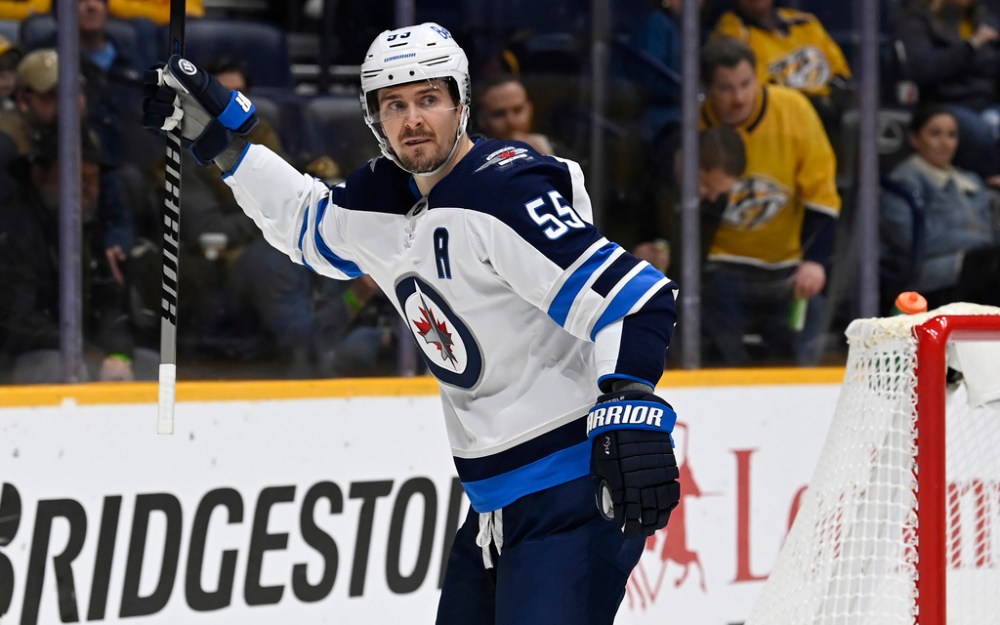
That will make Kreviazuk’s job a bit easier, and a bit less stressful, although testing still must be done every time the Jets leave or return to Canada.
“At least when we’re on the road guys won’t have to worry as much about being asymptomatic and finding out your positive and getting stuck,” he said. “It used to be everyone, but now we’re down to maybe 12 guys who are still having to be tested.”
Kreviazuk considers himself a positive person — no pun intended — and believes there’s a silver lining to be found in all this chaos.
“Just like a team, we all band together,” he said. “It makes you realize we’re capable of a lot more than we think. If you had told me this was coming down the pipe five or six years ago, I might not have applied for the job. But once you’re thrown into it, you realize what you can accomplish. I’ve gotten closer to some of our staff members based on the fact we have to lean on each other. I think in a few years we’re going to look back and go, ‘That sucked, but we learned a lot about ourselves.’”
Not to mention some home cooking is just around the corner.
“It will be nice to be able to see some family and friends, just be in our home rink, home base. Be comfortable there. It just breaks up the monotony of being on the road,” he said.
mike.mcintyre@freepress.mb.ca
Twitter: mikemcintyrewpg

Mike McIntyre grew up wanting to be a professional wrestler. But when that dream fizzled, he put all his brawn into becoming a professional writer.
Our newsroom depends on a growing audience of readers to power our journalism. If you are not a paid reader, please consider becoming a subscriber.
Our newsroom depends on its audience of readers to power our journalism. Thank you for your support.

